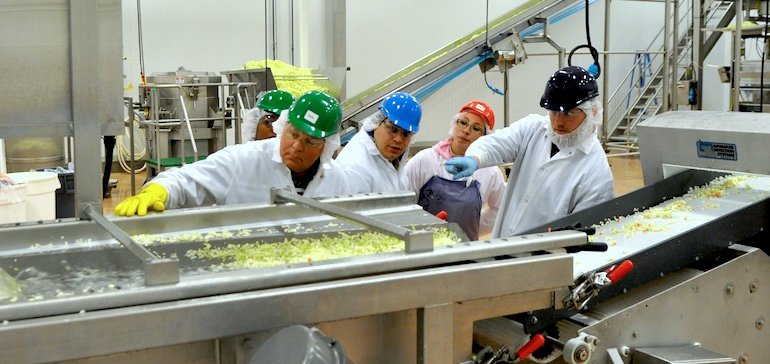HACCP vs HARCP: What’s the difference?

Confused about the difference between HACCP and HARPC? You’re not alone. Both stem from the Food Safety Modernization Act (FSMA), a robust food safety legislation act enacted in 2011. The ultimate goal of each is to proactively identify food safety problems in your facility and correct for each. HACCP and HARPC are often used interchangeably, albeit incorrectly, in food processing circles. Here are the key differences.
HACCP
HACCP, which stands for Hazard Analysis and Critical Control Point is a system that prioritizes and controls potential hazards in food production and its supply chain, arose around the 1960s as a way of ensuring safe food for astronauts on active missions. Today, HACCP plans are the foundation of Food Safety Plans everywhere. As such, the HACCP process applies to the entire food supply chain, from food manufacturing, production to distribution. The first step in HACCP training is to understand the seven HACCP principles.
The HACCP process
A HACCP plan pulls from seven distinct principles. They are:
- Conduct a Hazard Analysis
- Identify Critical Control Points
- Establish Critical Limits
- Develop Monitoring Procedures
- Decide on Corrective Actions
- Create Verification Procedures
- Form Record-Keeping Procedures
HARPC
HARPC stands for “Hazard Analysis and Risk-Based Preventive Controls.” Facilities subject to the Standards of Produce Safety, those already governed by HACCP, and those facilities regulated by Good Manufacturing Practices (GMP) for Dietary Supplements do not need to comply with HARPC. Small and very small business entities, as defined by the FDA are also exempt.
HARPC requires all covered food manufacturers, processors, packers, and storage facilities to:
• identify food safety and adulteration hazards associated with products and processes
• implement proper controls to minimize the hazards
• verify that effectiveness of controls
• utilize corrective actions to address any deviations from the controls that might arise in a food safety plan
Another key difference between HACCP vs HARPC is the inclusion of planning for potential terrorist attacks, international adulteration, and food fraud incidents.
Conclusion
Ultimately, having an effective HACCP plan in place is your best preliminary step toward a successful HARPC plan. A successful HARPC plan almost always guarantees HACCP compliance. Zosi offers flexible, accredited online HACCP courses for both beginners and advanced food industry professionals. To learn more about our path to HACCP certification, click here.
Source: fooddive.com

